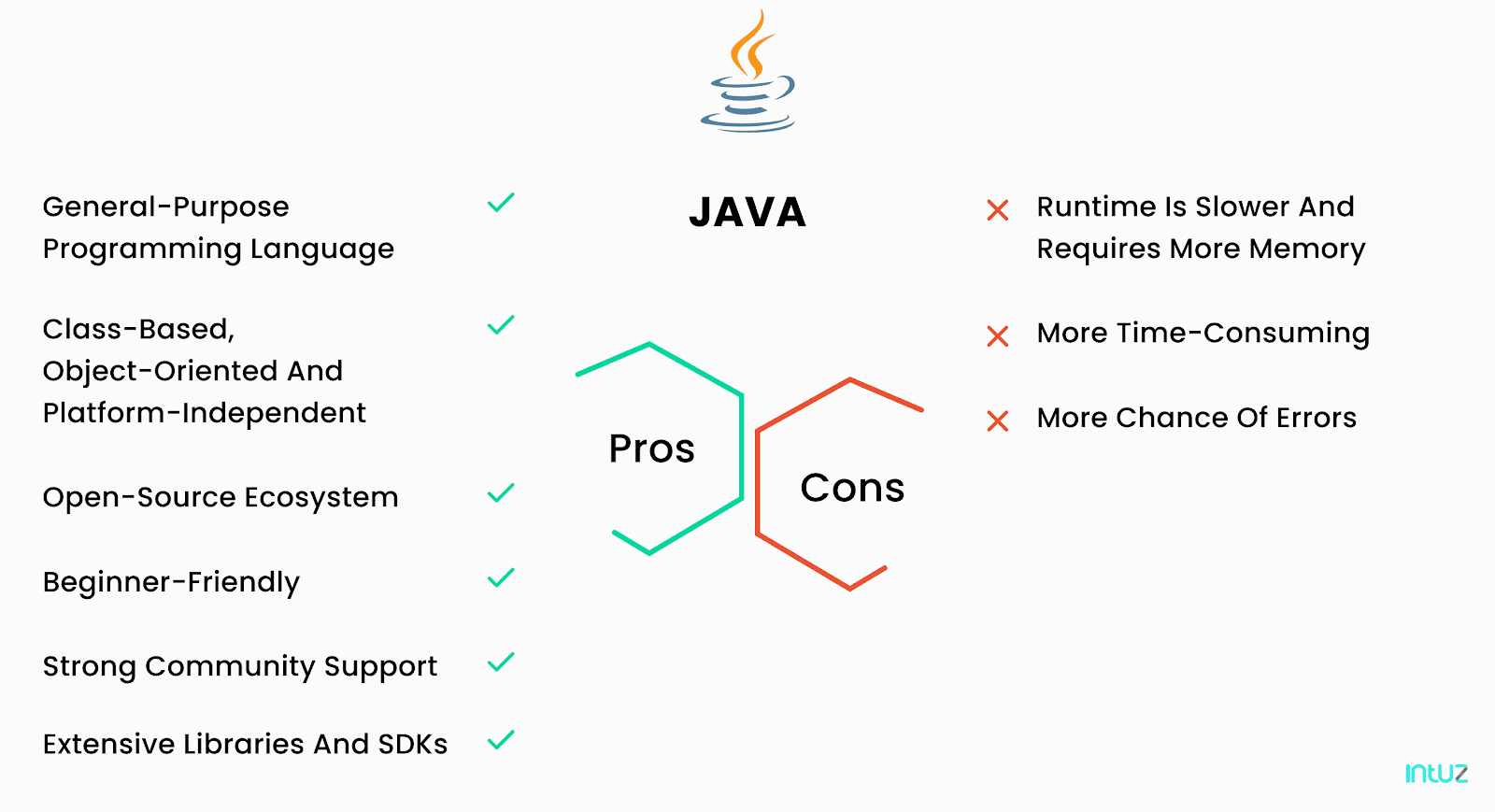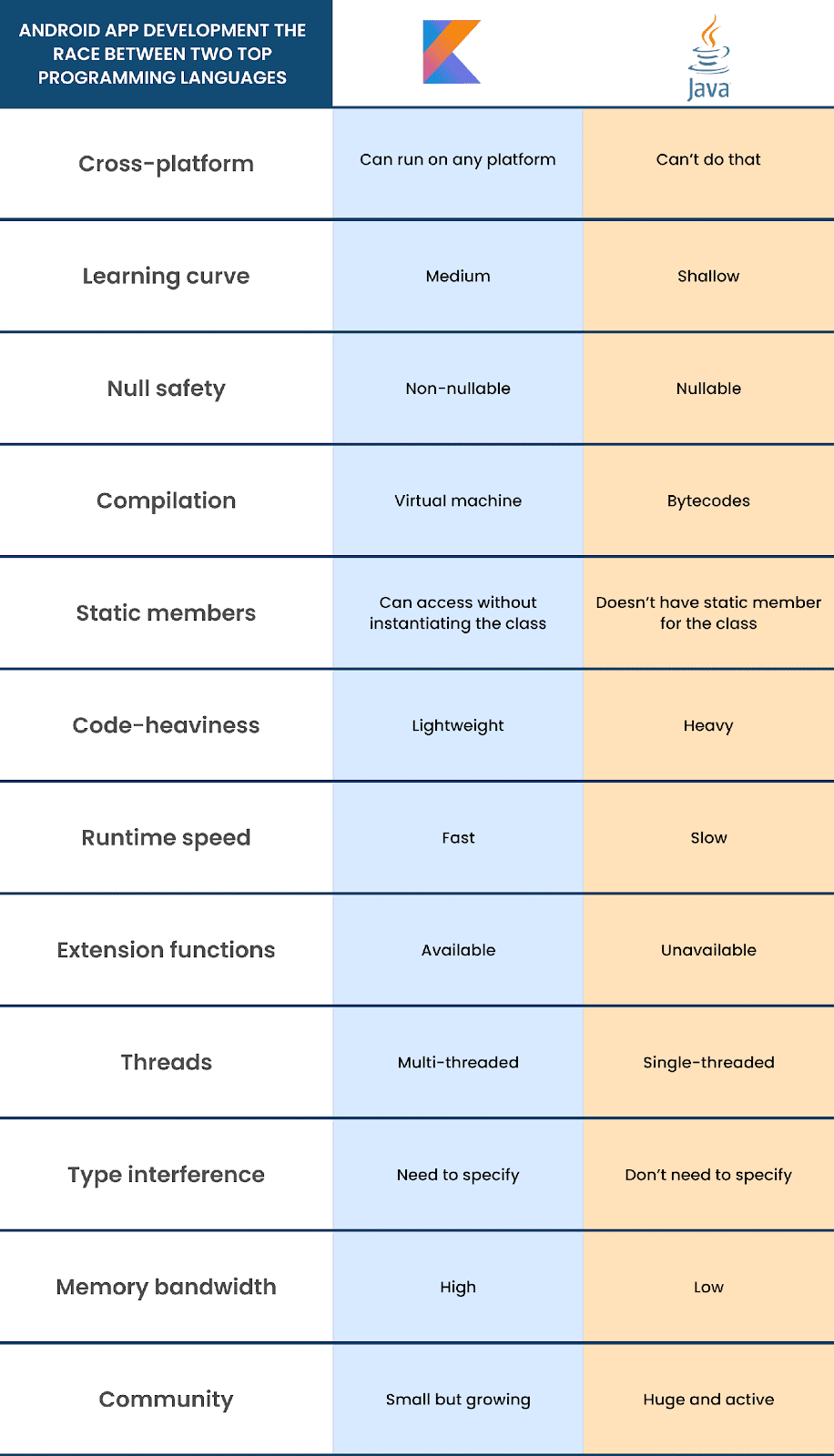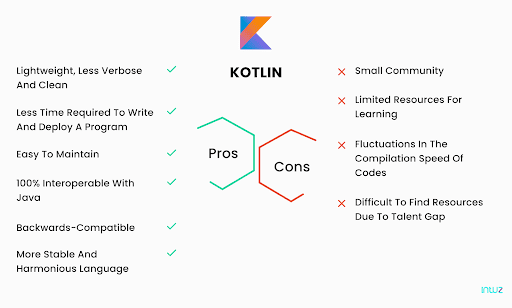Do you know how often you check your mobile phone daily? A Journal of Accountancy research says 86 times! No wonder, we spend three hours and 15 minutes on average every day, with the top 20% of users spending more than four and a half hours.
Thanks to the Coronavirus outbreak, it is easy to get lost in the social media vortex, WhatsApp loved ones or scroll through the news for more extended periods. In the last six months, our mobile phone usage has increased invariably.
When it comes to mobile app development, one cannot deny the fact that it is more important than ever given the exponential demand for mobile phones globally. But what is even more crucial is choosing the right programming language.
Top programming languages for Android app development
Years ago, there were only two Operating Systems to build a mobile app – Android and iOS. Today, five more operating systems have joined the list, namely: Palm OS, Windows Mobile, Web OS, Blackberry and Symbian.
However, the universe of the top programming languages for mobile app development has expanded over time. For iOS, this includes Objective-C and Swift.
Since Android is an open-source software development platform by Google, developers must get the Android App Development Toolkit including emulators, debuggers and the required SDK.
That makes Kotlin, Java, HTML, and CSS as the top programming languages for Android development. Out of them, Kotlin and Java stand out for their user-friendly nature, a higher level of practicability and depth.
This article discusses both programming languages in detail, including their features, pros and cons. But first – let us study their definition:
Kotlin
Kotlin is a statically-typed, general-purpose programming language with type inference. It was designed to integrate fully with Java and improve the coding experience practically and effectively.
Using Kotlin with Java reduces excessive boilerplate code during the Android app development process. The programming language also boosts syntax and introduces concise abstractions and expressions.
Features
- With an intuitive syntax, Kotlin ensures increased efficiency of the working team. That means app developers take less time to write and deploy a program because of which the mobile app development process is shorter.
- Kotlin for Android app development is easy to maintain thanks to the support of a massive number of IDEs, including Android Studio and other SDKs. Besides, app developers have the liberty to work with any toolkit they are comfortable with.
- App developers don’t need any prior mobile app development guide to use Kotlin. They can get started asap. If you are looking to hire Kotlin developers, you may do so with ease.
- Kotlin is 100% interoperable with Java, which makes it an obvious choice for enterprises, which have a vast Java codebase to work with.
- The latest version of Kotlin is backwards-compatible with its previous versions. This arrangement eliminates the most significant pain point that app developers have who deal with multiple versions of the programming language.
- Kotlin comprises an Android Studio which offers adaptation tools and extended support to app developers. That allows the latter to work on both Java and Kotlin without any hassle. It is because of this feature that the programming language has become more stable and harmonious.
- Kotlin is lightweight, less verbose and clean regarding writing callbacks,
 getters/setters and data classes. It offers advanced solutions for eliminating API design deficiencies.
getters/setters and data classes. It offers advanced solutions for eliminating API design deficiencies.
Disadvantages
- Kotlin’s community is small but fast-growing. However, that means, there would still be limited resources to learn the language.
- Even though the network of Java app developers is strong, Kotlin’s base is still at a nascent stage with a few developers who specialize in Kotlin. The Android app development market is currently witnessing a talent gap in this regard. It won’t be easy to hire Kotlin developers.
- Kotlin app developers have previously reported fluctuations in the compilation speed of the codes. In some cases, it is extraordinarily fast and in others, low. The issue is yet to get resolved as of today.
However, despite its flaws, Kotlin is bound to introduce solutions which can alleviate common programming headaches and improve the Java ecosystem as a whole.
Kotlin’s growth cycle: where is the language today?
It was in 2017 when Google recognized Kotlin as the second official programming language of Android app development – six years after it was launched in the market. Since then, Kotlin’s demand by app developers and enterprise communities has grown exponentially as they consider the language to be pragmatic and intuitive.
Since Kotlin is fully interoperable with Java, the code used in it can be used on Java and vice versa. The arrangement makes the job of app developers easier as they have the liberty to utilize various Java libraries and frameworks in the Kotlin programs.
Besides, Kotlin’s Integrated Development Environment [IDE] embodies facilities such as an Android Studio which comprises an integrated Kotlin-Java converter.
Kotlin projects are 30-40% shorter than Java equivalents. That implies app developers use less bulky boilerplates and keep the use of semicolons and expression of constants to a minimum which makes the Kotlin codes more readable and concise.
Java
Java, on the other hand, is a general-purpose programming language which is class-based, object-oriented and platform-independent. It allows app developers to write and compile codes compatible with all Java platforms.
Java can be found anywhere you look – it is the primary language for Android app development. Still, you may also find it in many government apps, web apps and big technologies such as Hadoop and Apache Storm.
Java is preferred for high-end projects involving emerging technologies such as machine learning, natural language processing and AI, and it is easy to hire Java developers for projects.
Features
- Java codes can run on any system – be it a browser window or virtual machine – with the help of its Java Virtual Machine, which is platform-agnostic. This trait comes in handy while reusing a code.
- Contrary to popular belief, Java is not limited to only Android app development. It is a broad open-source ecosystem that also supports cross-platform mobile app development, unlike Kotlin, which is still in a very niche space.
- Java is beginner-friendly. It can be understood easily by mobile app developers as it is relatively high-level. And if you want to learn the advanced levels, that is easy as well!
- Java can be used for building anything, including Android apps, Big Data technologies, Machine Learning, server apps in the financial services industry, and big enterprise server-side apps.
- Because Java has been in the picture for decades, app developers can get help for any issue, bug or glitch in their codes. Stack Overflow and GitHub communities are specifically known for that! It is easy to hire Java developers.
- Java also has an extensive library and SDKs that help in the Android app development process.
Disadvantages
- Java’s runtime is slower and requires more memory when compared to other programming languages.
- Java requires more extended codes which are more time-consuming and filled with bugs and errors that increase the workload of mobile app developers.
- Unlike Kotlin, Java’s limitations can increase errors in the application with the Android API design.

Is Java’s end near?
App developers are divided on Java. The programming language has been in the picture for a very long time; it has become a crucial part of mobile app development. It is utilized for creating mobile, web, desktop and enterprise applications.
Some don’t even consider a mere language but an impressive ecosystem of tools that cover everything required for Java development, such as IDE, development kit, and runtime environment among others.
Sure, no language is without faults, and Java has a few flaws that annoy app developers. For instance, certain limitations within Java that impede Android API design. Some developers believe Kotlin will replace Java as the leading programming language for Android app development while others think they will coexist.
Whatever happens, it will be best for the mobile app development community. But since we are here, let us compare Kotlin and Java:

Wrapping it up
On the one hand, Kotlin is one of the top programming languages convenient for small to large-size businesses. Kotlin allows for greater accessibility in regards to multi-platform programming. It enables sharing code between all platforms.
The latest release of Kotlin makes mobile app development scalability attainable as it supports the benefit of code reuse, saves time and effort for advanced tasks. There is no surprise that many enterprises are making Kotlin as their official programming language.
From 2019, many enterprise leaders are in the process of migrating to Kotlin. Some of the memorable names include Uber, Trello, Airbnb, Twitter, and Evernote.
However, Java has its fair share of advantages, starting with the fact it is highly established in the industry. Therefore, weigh the pros and cons if you are confused about which top programming languages you should use for mobile app development.
If you need clarity on the decision, hire Java developers or hire Kotlin developers to finish your mobile app development project!


 getters/setters and data classes. It offers advanced solutions for eliminating API design deficiencies.
getters/setters and data classes. It offers advanced solutions for eliminating API design deficiencies.
































